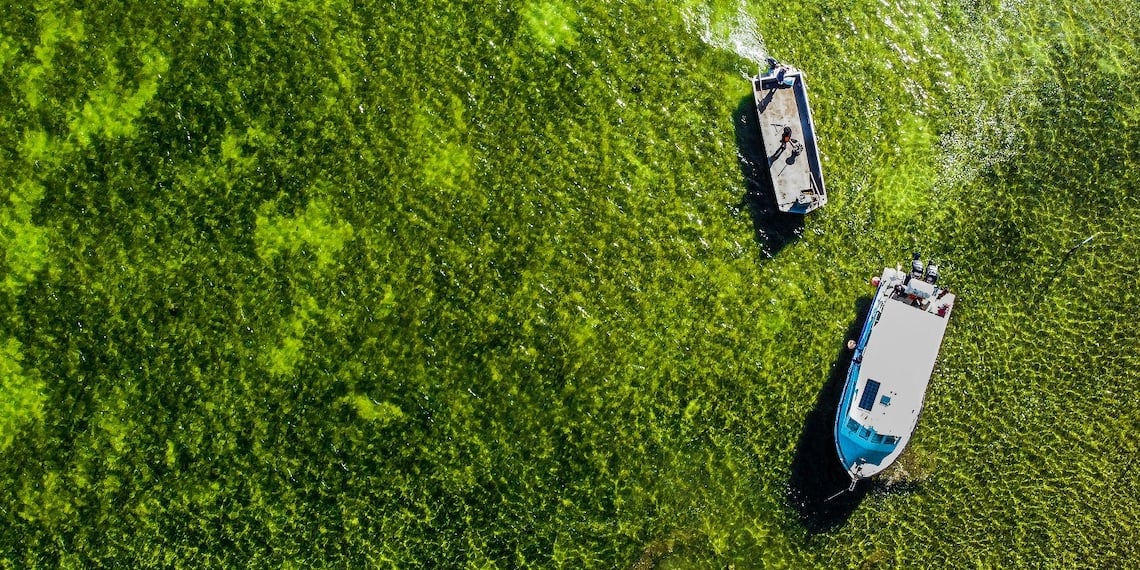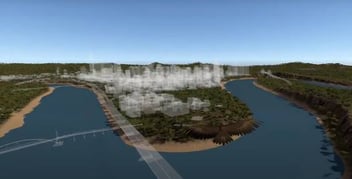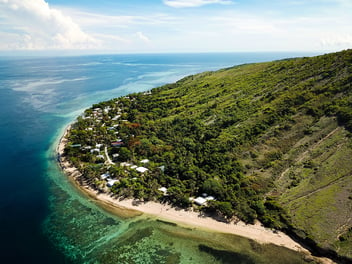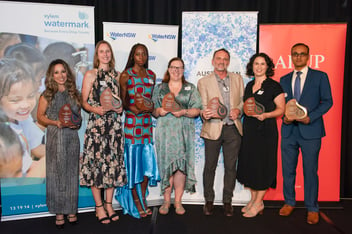Utility trials seaweed farming for waterway health

In a bid to support the marine waterway health of South East Queensland’s iconic Moreton Bay, one leading utility has been trialing floating “seaweed sausage” farms as a means of improving the health of marine ecosystems.
With World Ocean Day (8 June) encouraging us all to consider what we can do to help conserve marine ecosystems and resources for future generations, Water Source explored the thinking behind Urban Utilities’ Queensland-first seaweed farming trials.
Urban Utilities spokesperson Anna Hartley said the Queensland-first research project – partnering with The University of the Sunshine Coast (UniSC) – explored the benefits of farming seaweed to reduce nutrients and support waterway health in the Bay.
“When a lot of people think of seaweed, sushi is probably the first thing that comes to mind, but it’s also good at removing nutrients and could be used to help keep our waterways healthy,” she said.
“As part of the trial, the project team nurtured four kinds of locally harvested seaweed at the CSIRO’s Bribie Island research facility, before the different species were tested at our science lab in Darra for their effectiveness in removing nutrients.
“Then, more than 125 kg of seaweed – the equivalent of around 10,000 sushi rolls – was grown in the bay to trial the seaweed in real conditions.”
Hartley said the trial has been motivated by Urban Utilities’ commitment to finding innovative and effective ways to care for the health of local marine systems.
“Over the past 20 years, Urban Utilities has invested more than $600 million in upgrades to our wastewater treatment plants,” she said.
“Despite now servicing one million more people, these investments have reduced nutrients and other emissions from our wastewater treatment plants by 80%.
“Urban Utilities is continuing to develop innovative projects and technology to protect Moreton Bay. We’re reducing the nutrients we release to marine systems to ease increasing pressure on these ecosystems from population growth.”
Working together
University of the Sunshine Coast biologist Professor Nick Paul said the project was a collaborative effort that also involving Moreton Bay Rock Oysters and the Fisheries Research Development Corporation.
“We’ve discovered ‘sausage’ shaped nets are the most effective way to grow seaweed in the Bay, and we gained a better understanding of how seaweed grows at different times of the year,” he said.
“The project involved growing seaweed in tubes of floating nets … at an oyster farm in Moreton Bay and studying their ability to absorb nutrients from the water, which types of seaweed grow best, and whether they could potentially be an additional crop for oyster farmers.
“We also discovered seaweed can support oyster growth by increasing oxygen in the water.”
Paul said the trial established the multi-faceted benefits of growing seaweed, and also identified four key seaweeds that have potential as commercial crops, as well as the ability to use existing aquaculture infrastructure.
“It also established the benefits to waterway health in the region, with every tonne of seaweed harvested removing 1.5 kg of nitrogen with it,” he said.
“This means any business that farms seaweed in Moreton Bay will have a verifiable positive effect on the environment, if produced in a sustainable manner.
“Environmental monitoring around the seaweed site and oyster farm also provided us with important baseline information, revealing an incredible diversity of fish and seagrass.”
The right balance
Hartley said large-scale seaweed farming could also help maintain the right balance of nutrients in Moreton Bay as the South East region grows.
“Nutrients are vital for life and occur naturally in our environment, but they can enter waterways from many sources such as industry, soil erosion, stormwater run-off and treated wastewater,” she said.
“As more people call our region home, we’re passionate about exploring clean, green and innovative ways to make sure the balance of nutrients in our environment remains just right.”
Urban Utilities is now reviewing the results from the project’s final report to determine what’s next for seaweed farming in Moreton Bay.
“The project was an exciting first step, but more research needs to be done to understand if it would be viable and cost-effective to progress to a full-scale seaweed farm in Moreton Bay for nutrient offsetting,” Hartley said.
The joint research project was supported by Urban Utilities, the University of the Sunshine Coast, Moreton Bay Rock Oysters and the Fisheries Research and Development Corporation.



